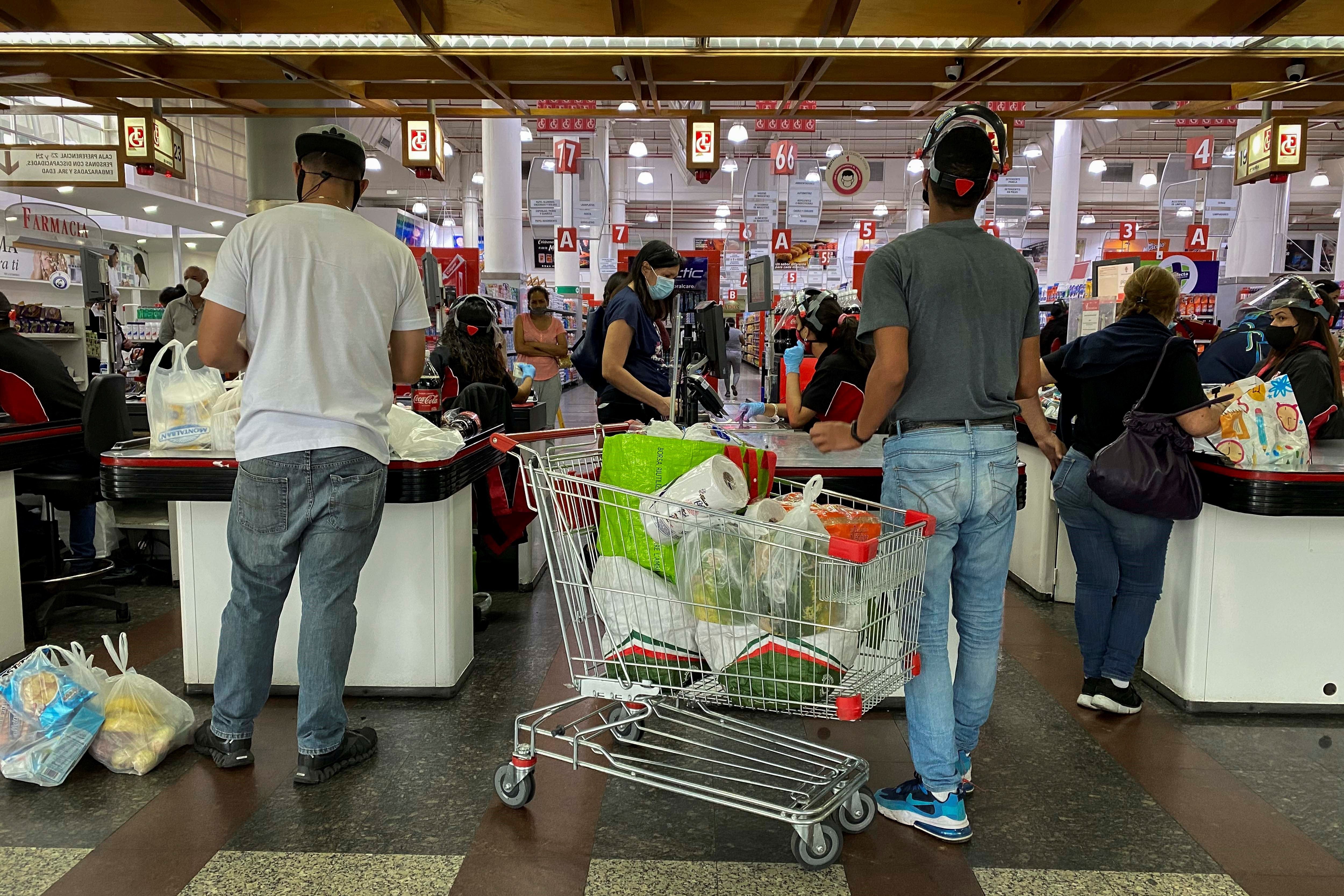
The basic food basket in Venezuela cost 455 dollars in February, an increase of 61% compared to a year ago, according to information released on Monday by the Cendas-FVM center, an independent body that provides these data in the absence of official figures.
According to the Center for Documentation and Social Analysis of the Venezuelan Federation of Teachers (Cendas-FVM), in February 2021, an average family of five needed an average of $282 to meet their minimum food needs through the basket.
That is, now, Venezuelans require 173 dollars more than a year ago to buy the same products, a fact that reflects the rising cost of living in foreign exchange in the country, which until last December experienced hyperinflation that pulverized the value of the local currency, the bolivar, and that opened the doors to a process of informal dollarization covering more than 50 per cent of transactions, according to estimates by private firms.

However, various economic experts argue that the majority of Venezuelans do not have continuous and significant access to the currency.
“In Venezuela, prices also increase in dollars. Despite the fact that the exchange rate fell compared to January, the basket, in short, in dollars is increasing. The price marker, for a long time, is the dollar,” the director of Cendas, economist Oscar Meza, told the news agency EFE.
He stated that to cover the cost of food, the equivalent of 300 minimum wages was needed, which in February stood at 7 bolivars (1.5 dollars at the time) and that as of this second half of March, it went to 130 bolivars (30 dollars), by order of dictator Nicolás Maduro.
The National Statistics Institute (INE) has not published the cost of the food basket since 2014, which, according to experts, is part of a “policy of opacity” on the part of agencies, which also do not publish other indicators such as economic activity and poverty.
(With information from EFE)
KEEP READING:
Últimas Noticias
Debanhi Escobar: they secured the motel where she was found lifeless in a cistern
Members of the Specialized Prosecutor's Office in Nuevo León secured the Nueva Castilla Motel as part of the investigations into the case

The oldest person in the world died at the age of 119
Kane Tanaka lived in Japan. She was born six months earlier than George Orwell, the same year that the Wright brothers first flew, and Marie Curie became the first woman to win a Nobel Prize

Macabre find in CDMX: they left a body bagged and tied in a taxi
The body was left in the back seats of the car. It was covered with black bags and tied with industrial tape
The eagles of America will face Manchester City in a duel of legends. Here are the details
The top Mexican football champion will play a match with Pep Guardiola's squad in the Lone Star Cup

Why is it good to bring dogs out to know the world when they are puppies
A so-called protection against the spread of diseases threatens the integral development of dogs



